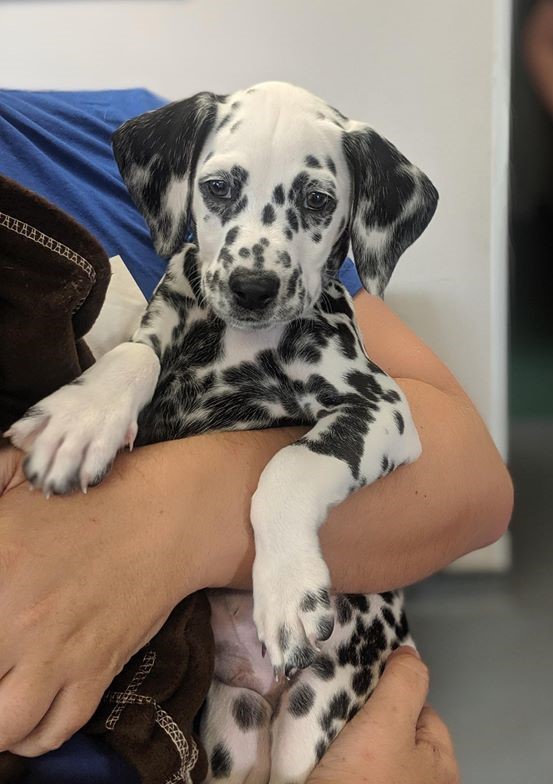Thinking of getting a puppy?

If you’re thinking of getting a puppy, whilst it can be a very exciting time, there are lots of important factors to consider…
Below is a list of items you‘ll need to purchase:
· Collar and lead
· Food and water bowls.
· Puppy training pads
· Puppy food
· Dog bed
· Crate (If crate training)
· Puppy treats
Other important things to consider…
· Pet Insurance
· Veterinary costs i.e – annual vaccinations
· Neutering cost
· Lifelong flea and worm treatment
Did you know?
Valley Vets offer free puppy health checks, so once you have collected your new pup, please call our Reception team and make an appointment for them to be seen by one of our Vets.
Valley Vets Pet Health Plan
A great way to budget monthly for your pet’s healthcare is to sign up to the Valley Vets ‘Pet Health Plan’. The health plan is paid monthly by direct debit and covers the cost of your puppy's yearly vaccinations, microchipping and flea, tick and worm control. The health plan is not a replacement for pet insurance, but should run alongside your normal insurance policy to help you manage your dog’s preventative healthcare more conveniently. We recommend taking out pet insurance to help cover the cost of accidents or illness.
When should my Puppy be vaccinated?
Your puppy can be vaccinated from six weeks old. They need to have two vaccinations at least four weeks apart.
The second vaccine can be given no earlier than ten weeks of age. Until your puppy has finished its primary vaccination course it is important that it doesn’t mix with other dogs that are not vaccinated; this usually means keeping your puppy indoors for the first few weeks. It is also important to vaccinate annually.
How often should my puppy be wormed?
We recommend worming your puppy every four weeks until the age of six months, then every three months for life. It’s a good idea to regularly weigh your puppy to ensure you’re giving the correct worming dose.
What should I feed my puppy?
It is important your puppy has enough food to grow and that you feed a diet which is designed for puppies rather than adult dogs, to ensure the right nutrients are present for growth and development.
How often should I use flea treatment on my puppy?
Depending on the product you use most flea treatments last four - eight weeks. A spot on treatment can be applied to the skin on the back of your puppy’s neck or a tasty tablet given to treat or prevent fleas. Fleas also lay thousands of eggs in carpets, beds, rugs etc. so it is important to treat the environment as well as your pet.
Should I treat my puppy for lugworm, ticks or other parasites?
Many of the newer, prescription monthly flea products used by our vets also have built-in protection for lungworm, roundworm, ticks and mites. Your vet will be able to discuss the risks in your area and decide on the best treatment for your pup.
When should I neuter my puppy?
We advise that female dogs should be neutered from five months of age. Neutering prevents females coming into season and becoming pregnant. Male dogs can also be neutered from 5months and can prevent unwanted behaviour, but is not recommended in every case. Each individual puppy is different so it is best to ask your Vet for advice.
Should I get my puppy insured?
Insuring your puppy will give you peace of mind if they have an illness, accident or injury. This will ensure they are offered the best possible care without you having to worry about the cost.
Should I microchip my new puppy?
A microchip is a tiny device about the size of a grain of rice, which is inserted under the skin in the neck. A microchip is a way of permanently identifying your puppy, so that you can be reunited if they get handed in as a stray or after being injured. Unlike a collar, the microchip cannot be lost. It is now a legal requirement for all puppies to microchipped before 8 weeks of age.
Toys
Puppies love to chew, therefore it’s important to get them lots of toys to keep them stimulated. So, if you want to protect your socks, your shoes and your sofa, buy a selection of chews for your puppy to test their teeth on instead. Just make sure they’re non-toxic, durable and not too tough for your puppy’s teeth.





